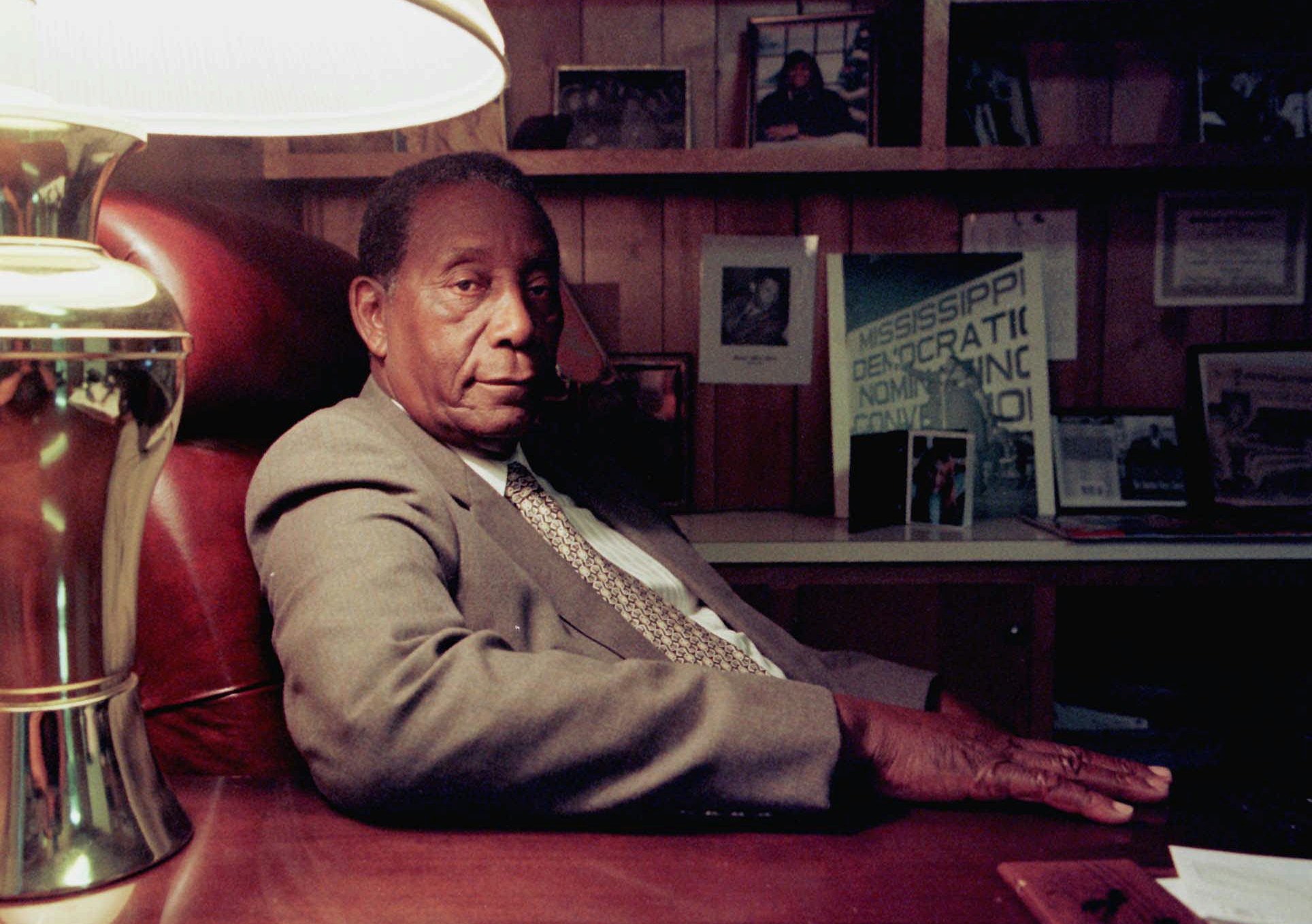More Mississippians often vote in elections where race is at least a subtext if not out front and center.
And when Black candidates are on the ballot, in particular, Mississippi voters typically clock record or near-record turnout.
In the 1971 gubernatorial race, Charles Evers of Fayette made history as the first Black Mississippian in the modern era to run for governor. Evers, the brother of slain civil rights leader Medgar Evers, was a civil rights leader in his own right and was the first Black Mississippian in the modern era to win the office of mayor of a biracial town.
Evers ran as an independent against Democrat Bill Waller. In that 1971 governor’s race, Waller earned 601,222 votes — still the most votes for a gubernatorial candidate in the history of the state.
Remember, in 1971, Mississippi’s population was 2.2 million compared to just under 3 million today, and that 1971 election is still a high water mark in terms of the most votes garnered by a candidate for governor.
It should be stressed that Bill Waller was no segregationist. As a matter of fact, he was a racial moderate, even enlightened on the issue.
As Hinds County district attorney, Waller twice prosecuted Byron De La Beckwith, who years later was finally convicted of assassinating Medgar Evers. In the racially contentious 1960s, both of Waller’s efforts to prosecute De La Beckwith ended in mistrials when all-white juries did not reach a unanimous verdict. Still, his effort to bring Evers’ killer to justice has been described as heroic. As governor, Waller tried to heal racial wounds and appointed Black Mississippians into state government.
To Waller’s and to Mississippians’ credit, he defeated avowed segregationists in the 1971 Democratic primary for governor, and he did not make race an issue against Evers in the general election.
But the unprecedented vote Waller received in the general election cannot be ignored.
To understand the significance of Waller’s vote total, a little historical perspective is needed. For much of the history of the state after the Civil War and Reconstruction, the Democratic Party held all the power.
Normally in those times, the election that decided the winner of any contest was the Democratic primary. The winners of the Democratic primary most often ran unopposed or with token opposition in the November general election.
For instance, the most votes the Democratic gubernatorial nominee received in the general election in the two races before and after the Waller-Evers contest in 1971 was the 413,620 votes William Winter (another racial moderate) received in the 1979 general election. Winter’s total was almost 200,000 less than what Waller garnered in 1971. For the record, in 1979, the losing candidate against Winter — Republican Gil Carmichael — received 263,702 votes compared to Evers receiving 172,712 in 1971.
Something different was bringing voters to the polls in November 1971, and the most obvious difference was the color of Evers’ skin.
To further illustrate the importance of race on the ballot during the time period, the 654,509 Mississippians who flocked to the polls in the 1968 presidential election were significantly more than the number who voted in 1964 or 1972. What was significant about 1968 is that segregationist Alabama Gov. George Wallace was running as a third-party candidate and carried Mississippi that year.
Skip ahead to more modern times in 2011, when Republican Phil Bryant won with the second-most votes amassed in a November general election for Mississippi governor. Bryant’s opponent — Hattiesburg Mayor Johnny DuPree — was the first Black Mississippian elected by a major party to be a gubernatorial nominee.
On the flip side, the two Democrats other than Waller to receive the most votes in Mississippi were Black candidates: Mike Espy in the 2020 U.S. Senate race and Barack Obama in the 2012 presidential election. But the difference between now and 1971 is that the Republican Party is the dominant party, and Black Mississippians now vote at a much higher rate than they did in 1971, when they had gained the right to vote only a few years earlier.
The candidate who has received the most votes in the history of the state is Donald Trump in the 2020 presidential election, when 756,764 Mississippians cast their ballot for him. Many would argue that Trump has dabbled, to say the least, in racial politics.
This historic Mississippi electoral backdrop occurs against the quickly approaching 2024 presidential election, when Trump is running against Democrat Kamala Harris, the first Black woman to run for president as a major party nominee.
The outcome of that race in Republican-heavy Mississippi is all but a foregone conclusion.
But given the state’s history when Black candidates are on the ballot, it will be fascinating to assess the vote totals.

